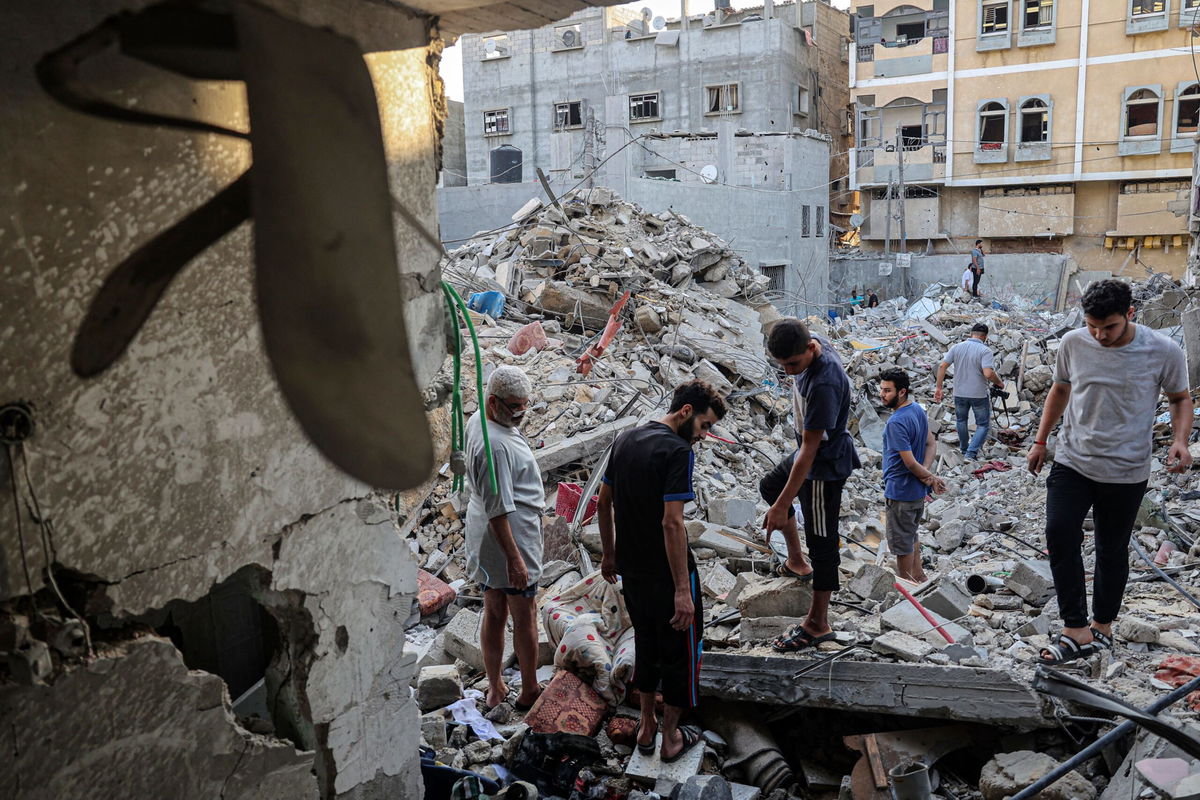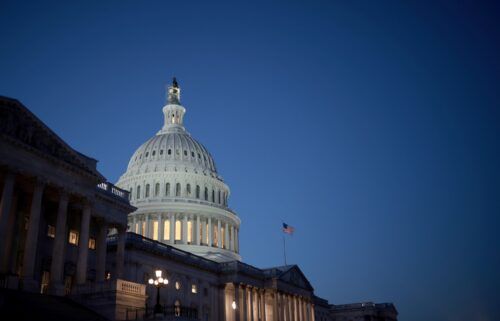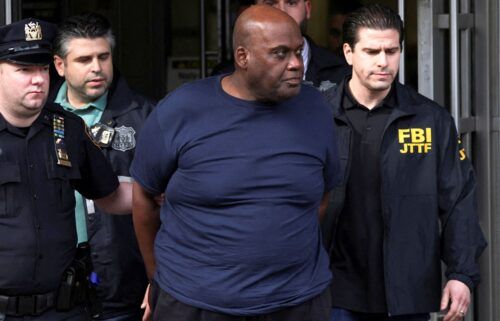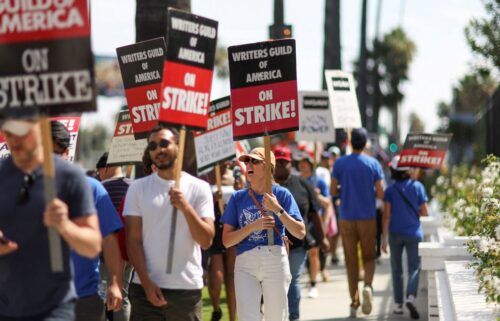Ceasefire between Israel, Gaza militants holds after deadliest clashes in a year

People search through the rubble following Israeli airstrikes in Rafah on Sunday.
By Abeer Salman, Andrew Carey and Ibrahim Dahman, CNN
A ceasefire between Israel and the Islamic Jihad militant group in Gaza was holding on Monday after a weekend of hostilities left dozens of Palestinians dead.
The truce, announced on Sunday evening by both sides, came about 50 hours after the escalation began, when Israel launched what it called preemptive strikes on targets of the Islamic Jihad militant group in Gaza.
At least 44 Palestinians, including 15 children and some militants, were killed in the violence, according to Palestinian officials.
The escalation was the most serious in nearly 15 months, when the Israeli military and Hamas fought an 11-day war in May 2021. A key difference this time was the decision by Hamas to stay out of the fighting. Its statements blamed Israel for the escalation but consistently stopped short of threatening attacks in retaliation.
The Israeli prime minister’s office thanked Egypt for its mediation efforts but warned that if the ceasefire was violated, “the State of Israel maintains the right to respond strongly.”
Terms of the agreement were not immediately made public. However, Egypt’s official state news agency reported that in the push for a truce, Cairo was working to see the release of an Islamic Jihad militant captured by Israel six days ago, and ensure a Palestinian prisoner on hunger strike in an Israeli jail would be transferred to a hospital for medical treatment.
In a statement issued by the State Department Monday, US Secretary of State Antony Blinken welcomed the ceasefire.
“The agreement will bring a welcome respite to Israeli and Palestinian civilians and permit deliveries of critical fuel and other supplies into Gaza,” the statement said.
“The United States remains dedicated to our ironclad commitment to Israel’s security and will remain fully engaged in the days ahead to promote calm. We will continue in the months ahead to work with partners to improve the quality of life for Palestinians in the Gaza Strip.”
Fuel supplies reentered Gaza from Israel on Monday to resupply the territory’s sole power plant after it ran out of fuel stocks on Saturday, in the midst of the weekend flareup. The shortage led to drastic cuts to electricity supplies throughout the territory.
Israel and Egypt have imposed a closure on Gaza since 2007, limiting access to the territory via land, air and sea, including tight restrictions on the movement of residents and the flow of goods.
Around 30 tankers crossed from the Kerem Shalom crossing point to the Gaza’s power plant on Monday morning, a haulier’s representative told AFP.
Mohammed Thabet of the Gazan Power Generating Company told CNN he expected there would be enough diesel arriving at the site to restart three of the plant’s four gas turbines by the end of Monday.
Israel says Islamic Jihad dealt a ‘significant blow’
On Monday a senior Israeli diplomatic official claimed that Islamic Jihad suffered a “very significant blow” and had been set back decades by the Israeli operation, which took out several of the militant group’s senior leaders.
Khaled Mansour, a leader of Islamic Jihad’s operations in southern Gaza, was killed on Saturday in an airstrike on a building in Rafah, close to Egypt’s border. Israel said Mansour was responsible for a number of terror attacks against Israelis.
He was the second Islamic Jihad commander killed in the Israeli operation, which it dubbed “Breaking Dawn.” In one of the Israeli campaign’s opening salvos on Friday afternoon, an airstrike killed Tayseer Al-Jabari, the head of the militant group’s operations in the north of Gaza.
Israel’s Prime Minister Yair Lapid on Monday said the operation had “restored deterrence.”
“All our goals were achieved. The entire senior military command of Islamic Jihad in Gaza was successfully targeted within three days,” he said. “Anyone who tries to harm us will pay with their life.”
As well as threats, Lapid also alluded to incentives his government believes can play a role in preventing future escalations.
“I want to speak directly to the residents of the Gaza Strip and tell them: There is another way. We know how to protect ourselves from anyone who threatens us, but we also know how to provide employment, a livelihood and a life of dignity to those who wish to live by our side in peace,” he said.
Islamic Jihad, the smaller of the two main militant groups in Gaza, fired around 1,175 rockets towards Israel since Friday, according to the latest Israeli figures, mainly toward Israeli communities close to Gaza. The group also launched rockets toward Jerusalem and Tel Aviv.
Around 185 rockets landed inside Gaza, the Israel Defense Forces (IDF) said Monday. The Iron Dome aerial defense system, which is deployed against any incoming fire assessed to be a threat to people or buildings, and which intercepted the rockets fired at Jerusalem, was operating at a 96% success rate, an IDF spokesman said Monday.
The Israeli diplomatic official appeared to acknowledge that Israel’s campaign might have been responsible for some civilian deaths, as well as those of militants, saying that initial assessments were that “most” civilian casualties were the result of errant rocket fire from Islamic Jihad. Civilian casualties were always a tragedy, the official said.
There have also been conflicting claims over responsibility for some of the deaths. In one incident Saturday, four children were among seven people killed in an explosion in Jabaliya in northern Gaza. The Palestinian Health Ministry said the blast was caused by an Israeli airstrike, but Israel rejected the claim, blaming errant rocket fire. The Israel Defense Forces released a video showing what it said was the Islamic Jihad rocket apparently suddenly losing power and falling to the ground over a built-up area.
The European Union on Monday welcomed the ceasefire between Israel and called for an investigation into Palestinian civilian casualties in Gaza.
“The EU deplores the loss of civilian lives over the past days, including a number of children and women, killed and injured in Gaza Strip. The EU calls for a timely and thorough investigation into these civilian casualties,” the EU said in a statement.
The Palestinian Authority presidency, which is based in the West Bank and has very limited influence over events in Gaza, strongly condemned Israel’s military operation and appealed for a strong response when the UN Security Council holds a special session later to discuss the escalation.
The Israeli official also saw the decision by Hamas to stay out of the fighting as vindication of the Israeli government’s policy of taking steps to improve economic conditions in Gaza, for instance through increasing the number of permits for workers to enter Israel. Hamas, the official stressed, was “an enemy not a partner … but there is cooperation we can do, predominantly through Egypt, to improve the situation in Gaza.”
Among the UN’s most pressing humanitarian priorities is restoring the supply of fuel to Gaza, the UN’s Office for the Coordination of Humanitarian Affairs (OCHA) told CNN. The shutdown over the weekend of Gaza’s power plant caused drastic cuts to electricity supplies throughout the territory.
Two water treatment plants and nine pumping stations were forced to shut down as a result of the electricity shortages, OCHA said, meaning 130,000 cubic meters of dirty water was flowing directly into the Mediterranean Sea.
The-CNN-Wire
™ & © 2022 Cable News Network, Inc., a WarnerMedia Company. All rights reserved.
CNN’s Abeer Salman and Andrew Carey reported from Jerusalem and Ibrahim Dahman reported from Gaza. CNN’s Hadas Gold and Elliott Gotkine in Ashdod contributed to this report.



